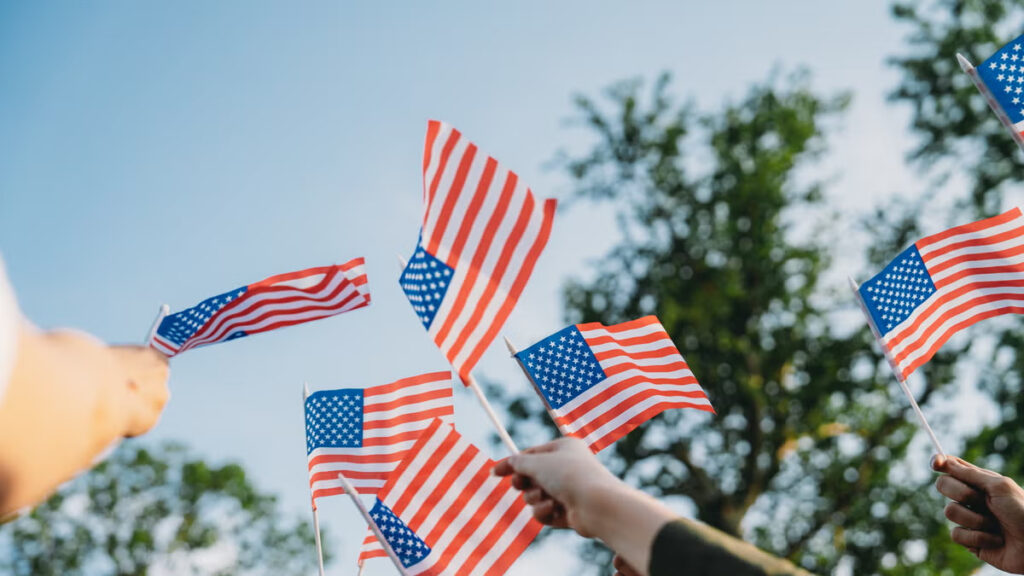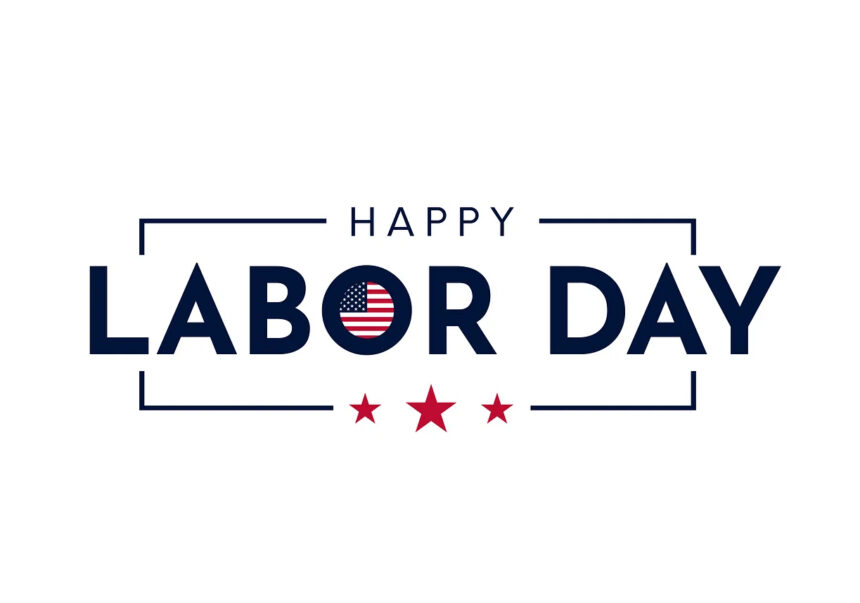Labor Day, observed annually on the first Monday of September, is a federal holiday in the United States that holds deep historical roots and significant cultural meaning. For 2024, Labor Day will be celebrated on September 2. While many people view the day as an opportunity for relaxation and end-of-summer festivities, its origins and significance stretch far beyond a mere day off. This extended exploration delves into the rich history of Labor Day, its evolution over time, and how it is celebrated today.
Historical Roots of Labor Day
The Industrial Revolution and Worker Struggles
To fully appreciate the significance of Labor Day, it’s essential to understand the historical context in which it was established. The late 19th century in the United States was a period of rapid industrialization. Factories and mass production created a surge in labor demand, but the conditions for workers were often harsh and dangerous. Long hours, unsafe working environments, and minimal wages were commonplace.
Children as young as five or six years old were frequently employed in factories and mines, enduring conditions that were both physically and psychologically taxing. The labor movement emerged as a response to these grim realities, with workers and labor leaders advocating for better working conditions, fair wages, and reasonable hours. The push for labor rights gained momentum, leading to significant social and legislative changes.
Founding Figures: Peter J. McGuire and Matthew Maguire
The idea of establishing a national holiday to honor workers was championed by two key figures: Peter J. McGuire and Matthew Maguire. Both men played crucial roles in the development of Labor Day, but their contributions were distinct and complementary.
Peter J. McGuire: Visionary Leader

Peter J. McGuire, a co-founder of the United Brotherhood of Carpenters and a leader in the American Federation of Labor (AFL), is often credited with proposing the idea of Labor Day. On May 12, 1882, during a meeting of the New York Central Labor Union, McGuire suggested the creation of a holiday dedicated to workers. He envisioned a day marked by a parade and celebrations to highlight the strength and unity of labor organizations. McGuire’s advocacy for workers’ rights, including the push for an eight-hour workday, earned him the title of “Father of Labor Day.”
Matthew Maguire: Organizational Pioneer
Matthew Maguire, who served as the secretary of the Central Labor Union in New York, also played a pivotal role in the establishment of Labor Day. Maguire is credited with organizing the first Labor Day parade on September 5, 1882, in New York City. Some historians believe that Maguire was the initial proposer of the holiday and that his organizational skills were instrumental in bringing the idea to life. Recent historical research has reassessed Maguire’s role, recognizing his significant contributions to the establishment of Labor Day.
The First Labor Day Celebration
The first Labor Day celebration took place on September 5, 1882, in New York City. Approximately 10,000 workers marched through the streets, demonstrating their solidarity and strength. The celebration included a parade, followed by a picnic and various festivities. This event set the precedent for future Labor Day observances, showcasing the unity of the labor movement and the importance of workers’ contributions to the nation.
Federal Recognition
Labor Day gained national recognition when President Grover Cleveland signed it into law on June 28, 1894. This decision was influenced by the labor unrest and strikes of the early 1890s, particularly the Pullman Strike. The Pullman Strike was a nationwide railroad strike that highlighted the need for a holiday to honor workers and acknowledge their contributions to the nation’s prosperity. The establishment of Labor Day as a federal holiday was a significant victory for the labor movement and a testament to the growing recognition of workers’ rights.
The Significance of Labor Day
Honoring Workers’ Contributions
Labor Day serves as a tribute to the achievements and contributions of American workers. It recognizes the pivotal role that workers play in driving economic progress and ensuring the well-being of society. The holiday is a time to reflect on the labor movement’s successes, including the establishment of fair wages, safe working conditions, and reasonable working hours.
Advocacy and Workers’ Rights
While Labor Day has evolved into a celebration of summer’s end and a long weekend, its core purpose remains rooted in advocating for workers’ rights. The holiday provides an opportunity to highlight ongoing labor issues, support labor organizations, and push for continued improvements in working conditions. It serves as a reminder of the struggles and achievements of the labor movement and the ongoing need for advocacy and reform.
Global Observance
Internationally, Labor Day is celebrated on May 1st, known as International Workers’ Day or May Day. This date has its origins in the labor movement’s struggle for an eight-hour workday, particularly the Haymarket affair in Chicago in 1886. The Haymarket affair was a pivotal event in labor history, marked by a protest for workers’ rights that ended in violence and repression. May Day serves as a global day of solidarity for workers and a celebration of their achievements.
In the United States, Labor Day is observed in September, reflecting a different historical and cultural context. While the U.S. holiday is distinct from International Workers’ Day, both observances underscore the importance of workers’ rights and the contributions of the labor movement.
Labor Day Around the World
In India, the celebration of Labor Day, or May Day, was first initiated by the Labour Kisan Party of Hindustan. Comrade Malayapuram Singaravelu Chettiar, the founder of the first trade union in India, organized meetings in Triplicane Beach and near the Madras High Court to mark the occasion. Singaravelar’s efforts led to the declaration of May 1st as Labor Day in India, and the red flag became a symbol of the labor movement. The observance of Labor Day in India reflects the global significance of workers’ rights and the impact of the labor movement on different cultures and societies.

Celebrating Labor Day Today
Modern Observances
Today, Labor Day is celebrated in various ways that reflect both its historical roots and contemporary cultural practices. While the holiday’s focus has shifted from labor protests to leisure activities, its significance remains strong.
Barbecues and Family Gatherings
One of the most common ways to celebrate Labor Day is through barbecues and family gatherings. Many Americans use the long weekend as an opportunity to enjoy outdoor activities, cookouts, and picnics. These gatherings often feature traditional foods such as hamburgers, hot dogs, and grilled vegetables. The holiday serves as a time for families to come together and enjoy the final days of summer before the arrival of fall.
Parades and Public Events
In some communities, Labor Day is marked by parades and public events that celebrate the contributions of workers. These events may include floats, music, and speeches that highlight the achievements of the labor movement and the importance of workers’ rights. Parades and public celebrations provide a platform for labor organizations to showcase their solidarity and advocate for ongoing labor issues.
Cultural Significance
Labor Day holds cultural significance as it reflects the values of hard work, dedication, and the pursuit of fair labor practices. The holiday serves as a reminder of the contributions of workers across various industries and the ongoing efforts to improve working conditions. It is a time to honor the legacy of the labor movement and acknowledge the progress that has been made in securing workers’ rights.
Advocacy and Awareness
Labor Day also serves as a platform for advocacy and raising awareness about labor issues. Organizations and activists use the holiday to highlight current challenges facing workers, promote fair labor practices, and support policies that benefit workers. This aspect of Labor Day emphasizes the ongoing need for advocacy and reform in the labor sector.
Recreational Activities
For many people, Labor Day is an opportunity to enjoy recreational activities and end-of-summer vacations. Beaches, parks, and outdoor recreational areas often see increased attendance during the Labor Day weekend. Families and individuals take advantage of the holiday to relax and unwind before the return to school and work.
Let’s go #labourdayclassic!! #riderslive #clfgameday pic.twitter.com/y4mO0ow1Hk
— Deseree Wiebe (@DesereeWiebe) September 1, 2024Practical Considerations for Labor Day 2024
Retail Stores and Shopping Malls
Most major national retailers and shopping malls will be open on Labor Day 2024. Many stores will offer special promotions and sales, making it an excellent opportunity for shopping. However, operating hours may vary, so it’s advisable to check with local stores for specific hours and promotions.
Restaurants and Fast Food Chains
Restaurants, fast food chains, and cafes will be open on Labor Day, often featuring special menus or discounts. Popular dining spots might experience higher traffic, so making reservations or planning for longer wait times may be necessary.
Entertainment Venues
Entertainment venues such as movie theaters, amusement parks, and sports facilities will be open on Labor Day. Some may offer special events or discounted tickets, providing additional opportunities for enjoyment during the holiday.
Public Transportation
Public transportation services will operate on a holiday schedule, which may involve reduced frequency. Checking local schedules for accurate timings will help ensure smooth travel during the holiday.
Gyms and Fitness Centers
Many gyms and fitness centers will be open on Labor Day, though some may have adjusted hours. It’s a good idea to check with your local gym for specific operating times.
Critical Services
Essential services, including emergency medical facilities, will remain operational on Labor Day. These services are crucial for public safety and health, ensuring that necessary care and support are available.
Closed Services
Government Offices and Post Offices
Most government offices, post offices, and courts will be closed on Labor Day. Planning any government-related business around these closures will help avoid inconvenience.
Banks and Stock Markets
Banks and stock markets will be closed on Labor Day, with no trading activities or banking transactions available. Planning financial activities ahead of time will ensure that any necessary transactions are completed before the holiday.
FedEx and UPS
Standard FedEx and UPS pickup and delivery services will not be available on Labor Day. Critical services may be offered at select locations, so contacting these services in advance for options is advisable.
Costco
Costco will be closed on Labor Day, so if you need to shop at Costco, visit before or after the holiday to accommodate your shopping needs.

Conclusion
Labor Day 2024, observed on September 2, provides a significant opportunity to reflect on the rich history and cultural importance of the holiday. From its origins in the labor movement to its modern celebrations, Labor Day stands as a testament to the contributions of American workers and their role in shaping the nation. While the holiday is often associated with recreational activities and sales, its core purpose remains a celebration of workers’ achievements and a platform for advocating workers’ rights.
Whether you’re enjoying a barbecue, attending a parade, or simply relaxing, Labor Day is a time to honor the hard work and dedication of workers past and present. It serves as a reminder of the labor movement’s successes and the ongoing need for advocacy and reform. As you celebrate Labor Day, take a moment to appreciate the legacy of the labor movement and the contributions of workers to the prosperity of the nation.





